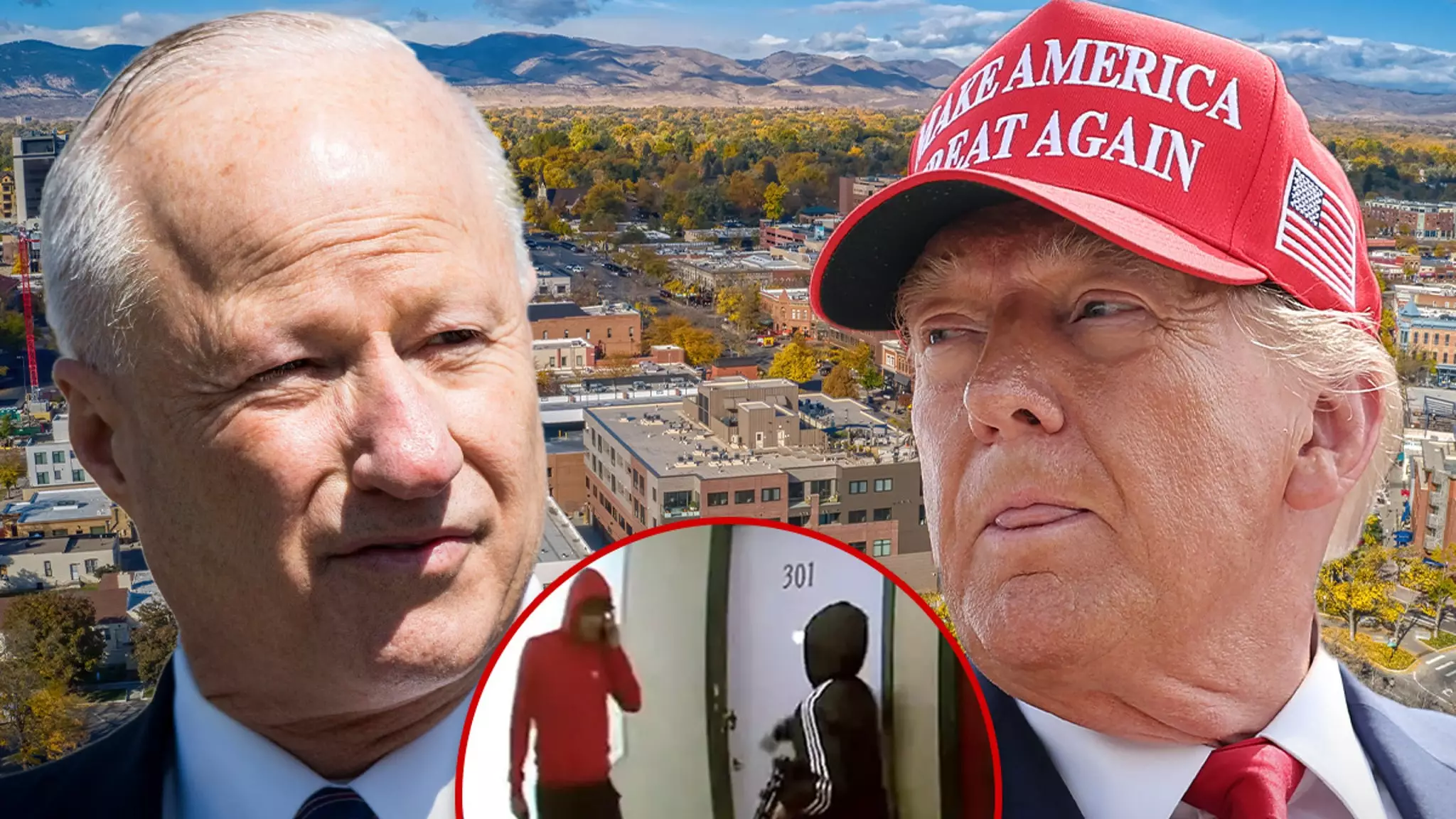As former President Donald Trump prepares to hold a campaign rally in Aurora, Colorado, he has painted a controversial picture of the city’s safety and immigration issues. During his announcement, Trump’s campaign described Aurora as a “war zone,” alleging that an influx of migrants, particularly from Venezuela, has led to widespread violence and fear. This characterization has been met with sharp rebuke from Aurora’s mayor, Mike Coffman, who argues that the assessment is both exaggerated and misleading.
The allegations leveled by Trump’s campaign emphasize the supposed chaos instigated by Venezuelan gangs, claiming they’re terrorizing local neighborhoods and driving residents from their homes. Such incendiary remarks, especially during a politically charged rally, serve to galvanize a specific audience by exploiting fears around immigration and crime. However, a closer examination reveals that the reality on the ground is far less dire than what Trump’s statement suggests.
Mayor Coffman, a Republican himself, has publicly stated that the concerns over gang activity have been significantly overstated. Pointing out that incidents of violence have been limited to just a few apartment complexes within a city of over 400,000 residents, he asserts that this narrative contributes to harmful stereotypes about immigrants and does a disservice to the community. Coffman’s rebuttal aims to shift the narrative away from one of fear toward a depiction of a diverse city that is largely safe and welcoming.
Despite the substantial disparity in their views, Mayor Coffman has expressed his readiness to welcome Trump to Aurora. His approach signals an opportunity for a more nuanced discussion about public safety and immigration. Coffman has extended an invitation to provide Trump with a personal tour of the city, reinforcing his desire to frame Aurora in a positive light and highlight the community’s strengths rather than its challenges.
While it is encouraging to see the mayor’s intention to engage in constructive dialogue, it raises questions about how effective such interactions can be when they happen alongside starkly contrasting narratives. Additionally, Coffman’s lack of contact with Trump’s campaign team suggests a disjointed effort in managing the city’s image before the high-profile rally. The absence of coordinated planning may result in missed opportunities to address these pressing concerns directly with the former president.
As the rally approaches, all eyes will be on how Trump addresses the issue of immigration in his speech. The potential for him to temper his rhetoric remains uncertain. Given the climate of fear often associated with discussions on immigration, it is crucial for public figures like Mayor Coffman to continue advocating for an accurate representation of their communities. Mischaracterizations can lead to a broader societal impact, fostering an environment of fear and division that goes beyond local politics.
The current standoff between Trump’s narrative and Coffman’s attempt at reassurance reflects a critical moment in American discourse regarding immigration and community safety.Aurora’s experience may very well serve as a microcosm for the larger debates surrounding these issues, prompting residents and leaders alike to negotiate the fine line between security and the embrace of diversity.


Leave a Reply